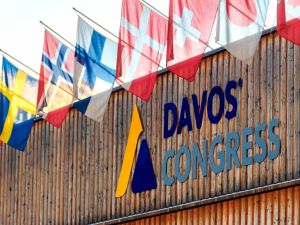By Italian geopolitics expert and Domino magazine editor, Dario Fabbri
The evolution of the European Union will depend on two main factors: what Germany wants to be when it grows up and the evolution of the war in Ukraine. So far, the intensification of cooperation among member states – first in the covid vaccination programme and then in the funds for economic recovery post-pandemic – has only been made possible by Berlin’s willingness. In recent months, the German government have decided to guarantee the issuance of bonds by the Commission in the name of the so-called ‘Next Generation’ EU, publicly to the markets.
From Berlin’s perspective, the main idea is to preserve the euro system, on which the well-being of the Federal Republic also depends. The common market could disintegrate if its weaker members were to plunge into crisis. Especially Italy, whose manufacturing sector is integrated into the German economy, and is the main beneficiary of the funds announced by Brussels, with the approval of Germany.
However, in the coming years, we cannot take it for granted that Berlin will maintain the same approach. Certainly, logic would dictate continuing along this path, but nations often make irrational decisions, influenced by specific sentiments in public opinion or the ruling class. In the Federal Republic, the economy is intrinsic to the moral philosophy, so a return to austerity for “cultural” reasons is plausible, not impossible.
This is the major concern for Rome and Paris, who are trying to form a common front on this issue, despite differences in other areas, to prevent a potential negative turn of events in the continent’s main economy. Although historically a counterpart in the Rhineland axis, France has a much narrower margin for manoeuvre on this front, as it depends, almost as much as Italy, on the continuation of Berlin’s expansionary fiscal policy, which is then reflected in EU institutions. Moreover, this is one of the reasons why the Quirinale Treaty was signed, so that the two Latin cousins could join forces.
Another crucial element that will determine the future of the European Union is the conflict in Ukraine. Not only because of the macroscopic consequences that any further intensification of hostilities could have, or the catastrophic possibility that they could assume atomic dimensions. The question of how to engage with Russia in the long term risks deeply dividing the member states, who hold very different positions. This division isn’t limited to economic or trade matters. Paris, Berlin, and Rome are more inclined to maintain a dialogue with Moscow, unlike the Central and Eastern European governments, especially Warsaw, Bucharest and the Baltic states, which take a much tougher stance against the Kremlin.
Once the hottest phase of the war is over, even with a temporary ceasefire, further divisions within the Union could emerge, potentially exacerbated by the newfound geopolitical weight of Poland, Romania, Lithuania, Latvia, and Estonia. Leading in Ukraine’s defence since February 2022, these countries are unlikely to accept a return to being mere economic satellites of Germany. Restoring the status quo will be difficult. Instead, they will want to have a greater say in intra-community relations, bolstered by the role they played in the conflict and the almost unconditional support of the United States. This newfound importance for these governments, which are less inclined than others to believe in the need for closer fiscal or political union and are more protective of national prerogatives they don’t intend to relinquish, has led to accusations over the years, especially against Poland, of violating Brussels’ intentions.
This, along with Germany’s inclination, will have a significant impact on the future of the European Union, well beyond the upcoming European elections scheduled for next spring.
*As with all investing, financial instruments involve inherent risks, including loss of capital, market fluctuations and liquidity risk. Past performance is no guarantee of future results. It is important to consider your risk tolerance and investment objectives before proceeding.





